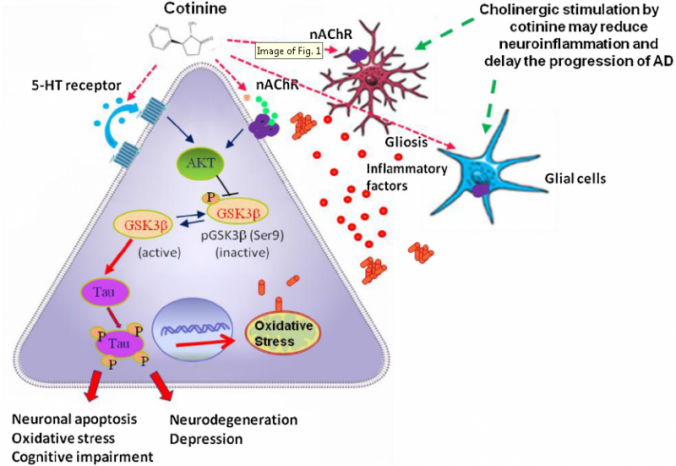Positive modulators of the a7 nicotinic receptor against neuroinflammation and cognitive impairment in Alzheimer’s disease

Revista: Progress in Neurobioligy. 2015, jan, 6.
Autores: Valentina Echeverria, Alex Yarkov, Gjumrakch Aliev.
Resumo:
Evidence so far indicates that therapies targeting a single aspect of Alzheimer’s disease (AD) have no sufficient efficacy in diminishing long-term the progression of AD. Neuroinflammation is an early event during the development of the disease and it is thought to exacerbate the abnormal aggregation of the amyloid beta peptide (Ab) and the microtubule associated protein Tau. Inhibition of gliosis is considered fundamental to reduce neuroinflammation, oxidative stress, apoptosis and synaptic dysfunction driving the progression of AD. Drugs that are able to target more than one aspect of the pathology may have higher chances of success. Modulators of a7 nicotinic acetylcholine receptors (a7nAChRs) such as nicotine and some of its derivatives have this potential because of their anti-inflammatory, antiapoptotic, pro-cognitive and anti-protein aggregation effects. However, the rapid desensitization of a7nAChRs is considered an important factor limiting its potential therapeutic use. In here, in light of current evidence, the objective of this review is to discuss the advantages and potential therapeutic value of positive allosteric modulators (PAMs) of the nAChRs in halting or delaying the progression of AD by diminishing neuroinflammation, abnormal protein aggregation and synaptic dysfunction.
18 de março de 2016 às 18:53

 Newsletter
Newsletter  RSS
RSS